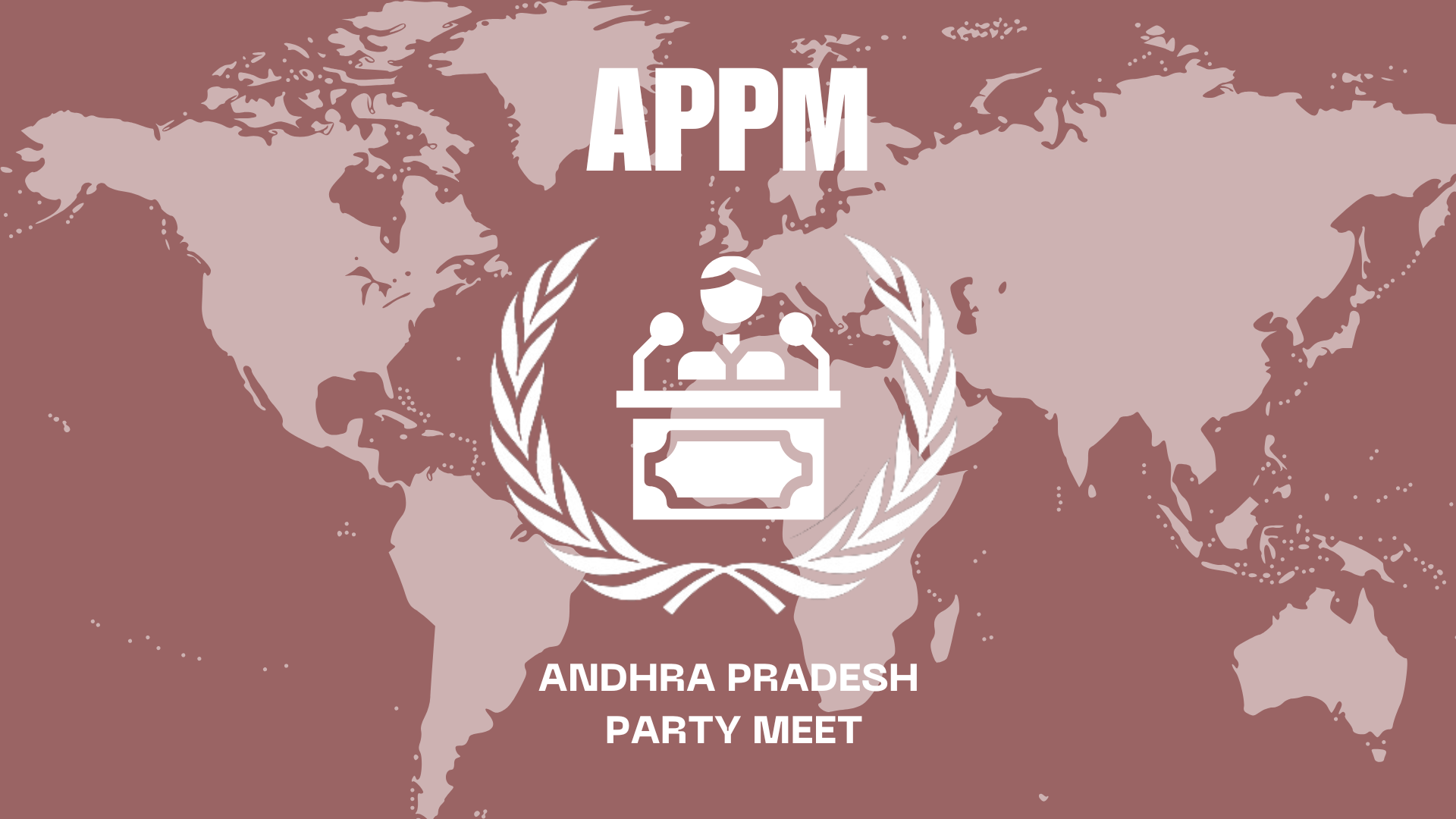
About The APPM
The Andhra Pradesh Parties Meet Committee represents a unique and dynamic political platform that brings together diverse political stakeholders from across the state of Andhra Pradesh, India. This collaborative forum serves as a microcosm of contemporary Indian regional politics, offering delegates an exceptional opportunity to engage with complex multi-party negotiations, coalition-building dynamics, and consensus-driven governance challenges that mirror real-world political processes.
Established as a mechanism to address the fragmented political landscape of Andhra Pradesh following its bifurcation in 2014, the committee emerged from the necessity to create unified approaches to state development while respecting the diverse ideological positions of various political entities. The political landscape is characterized by multiple regional parties, national party affiliates, and coalition partners, each representing different constituencies, castes, regions, and economic interests. This diversity creates both opportunities for comprehensive representation and significant challenges in achieving consensus on critical state issues within India's federal democratic framework.
Delegates will grapple with pressing contemporary challenges facing Andhra Pradesh, including the development of the new capital city Amaravati, agricultural distress and comprehensive farmer welfare programs, industrial development strategies for job creation, complex water sharing disputes with neighboring states, and the effective implementation of various central government schemes at the state level. Economic development remains paramount, with intensive discussions focusing on attracting foreign and domestic investments, developing world-class IT corridors, improving critical infrastructure connectivity, and achieving the delicate balance between rapid urban development and essential rural welfare programs.
Social issues will feature prominently in committee deliberations, encompassing education reform initiatives, healthcare accessibility improvements, women's empowerment programs, minority rights protection, and inclusive development policies. Environmental concerns, including sustainable development practices and climate change adaptation strategies, will also require careful consideration as delegates work to balance economic growth with ecological preservation.
Delegates will represent various political parties, ranging from the ruling party to opposition groups, regional movements, and coalition partners. Each delegation must skillfully navigate the complex web of state politics while advocating for their party's core principles and constituency interests. Success will require building strategic alliances, negotiating meaningful compromises, and crafting innovative solutions that address multiple stakeholder concerns simultaneously. The committee emphasizes collaborative problem-solving rather than adversarial politics, encouraging delegates to find substantial common ground while maintaining their distinct political identities.
Through structured debate, intensive negotiation, and strategic coalition-building, the committee aims to produce comprehensive policy frameworks, sustainable inter-party agreements on key developmental priorities, and effective mechanisms for ongoing political cooperation. This experience will provide delegates with profound insights into Indian federal politics, coalition governance complexities, and the intricate challenges of managing diverse political interests within a vibrant democratic framework, preparing them for real-world political engagement and leadership roles.
The Agenda
The agenda for this commitee is "Mission Swarna Andhra @2047- Road to a Developed, Inclusive, and Sustainable State". For more information about the agenda, check out the background guide featured below

